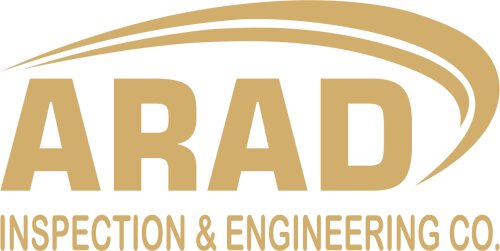Best Environmental Law & Compliance Lawyers in Iran
Share your needs with us, get contacted by law firms.
Free. Takes 2 min.
Or refine your search by selecting a city:
List of the best lawyers in Iran
About Environment Law in Iran
Environmental law in Iran encompasses a wide range of legislation aimed at protecting the environment, conserving natural resources, and promoting sustainable development. The legal framework includes laws related to air and water pollution, waste management, biodiversity conservation, and climate change mitigation.
Why You May Need a Lawyer
You may need a lawyer in Iran for environmental issues if you are facing disputes over land use, pollution violations, environmental impact assessments, or other regulatory matters. A lawyer can help you navigate the complex legal system and advocate for your rights in environmental disputes.
Local Laws Overview
In Iran, the Environmental Protection Agency (EPA) is the primary regulatory body responsible for enforcing environmental laws and regulations. Key laws that are particularly relevant to the environment in Iran include the Environmental Protection Act, the Clean Air Act, the Water Pollution Control Law, and the National Biodiversity Action Plan.
Frequently Asked Questions
Q: What are the main environmental issues in Iran?
A: Some of the main environmental issues in Iran include air pollution, water scarcity, soil degradation, deforestation, and biodiversity loss.
Q: Can individuals file environmental lawsuits in Iran?
A: Yes, individuals and organizations can file environmental lawsuits in Iran to address violations of environmental laws and seek compensation for environmental damage.
Q: What are the penalties for violating environmental laws in Iran?
A: Penalties for violating environmental laws in Iran can include fines, imprisonment, closure of businesses, and restoration of environmental damage.
Q: Are there any incentives for businesses to engage in environmentally-friendly practices in Iran?
A: Yes, the Iranian government offers incentives such as tax breaks, subsidies, and grants to businesses that adopt environmentally-friendly practices and technologies.
Q: How can I report environmental violations in Iran?
A: You can report environmental violations to the Environmental Protection Agency (EPA) in Iran or seek legal assistance to address the violations through the legal system.
Q: What rights do individuals have to a clean and healthy environment in Iran?
A: The Iranian constitution recognizes the right of every citizen to live in a clean and healthy environment and calls for the protection of natural resources for future generations.
Q: Are there any international agreements related to the environment that Iran has ratified?
A: Yes, Iran is a signatory to several international agreements on environmental issues, including the Paris Agreement on climate change and the Convention on Biological Diversity.
Q: How can I find a qualified environmental lawyer in Iran?
A: You can search for environmental lawyers in Iran through legal directories, bar associations, and referrals from other legal professionals.
Q: What are the steps involved in an environmental impact assessment in Iran?
A: The steps involved in an environmental impact assessment in Iran include scoping, baseline data collection, impact prediction, mitigation measures, and public consultation.
Q: How can I stay informed about environmental laws and regulations in Iran?
A: You can stay informed about environmental laws and regulations in Iran by following updates from the Environmental Protection Agency (EPA), attending environmental conferences and seminars, and seeking guidance from environmental experts.
Additional Resources
For more information on environmental laws and regulations in Iran, you can consult the Environmental Protection Agency (EPA) website, the Ministry of Energy and Environment, and local environmental organizations such as the Iranian National Commission for UNESCO.
Next Steps
If you require legal assistance in environmental matters in Iran, it is advisable to seek guidance from a qualified environmental lawyer who can provide expert advice and representation in environmental disputes. Be sure to gather relevant documents and evidence to support your case and communicate openly with your lawyer about your concerns and objectives.
Lawzana helps you find the best lawyers and law firms in Iran through a curated and pre-screened list of qualified legal professionals. Our platform offers rankings and detailed profiles of attorneys and law firms, allowing you to compare based on practice areas, including Environmental Law & Compliance, experience, and client feedback.
Each profile includes a description of the firm's areas of practice, client reviews, team members and partners, year of establishment, spoken languages, office locations, contact information, social media presence, and any published articles or resources. Most firms on our platform speak English and are experienced in both local and international legal matters.
Get a quote from top-rated law firms in Iran — quickly, securely, and without unnecessary hassle.
Disclaimer:
The information provided on this page is for general informational purposes only and does not constitute legal advice. While we strive to ensure the accuracy and relevance of the content, legal information may change over time, and interpretations of the law can vary. You should always consult with a qualified legal professional for advice specific to your situation.
We disclaim all liability for actions taken or not taken based on the content of this page. If you believe any information is incorrect or outdated, please contact us, and we will review and update it where appropriate.
Browse environmental law & compliance law firms by city in Iran
Refine your search by selecting a city.















